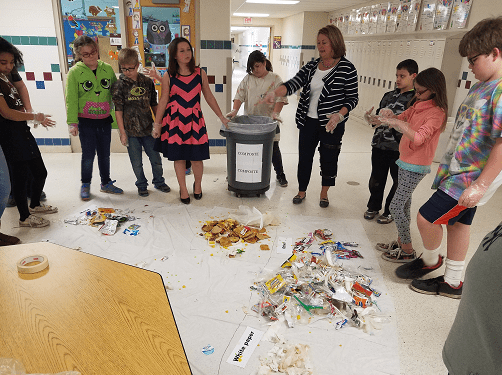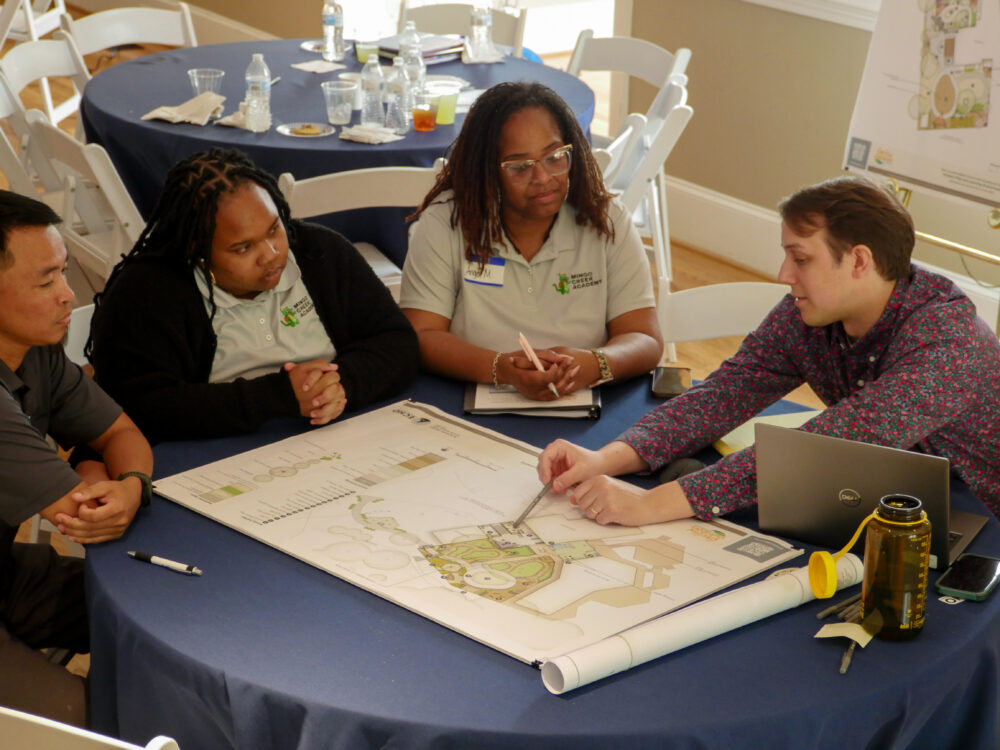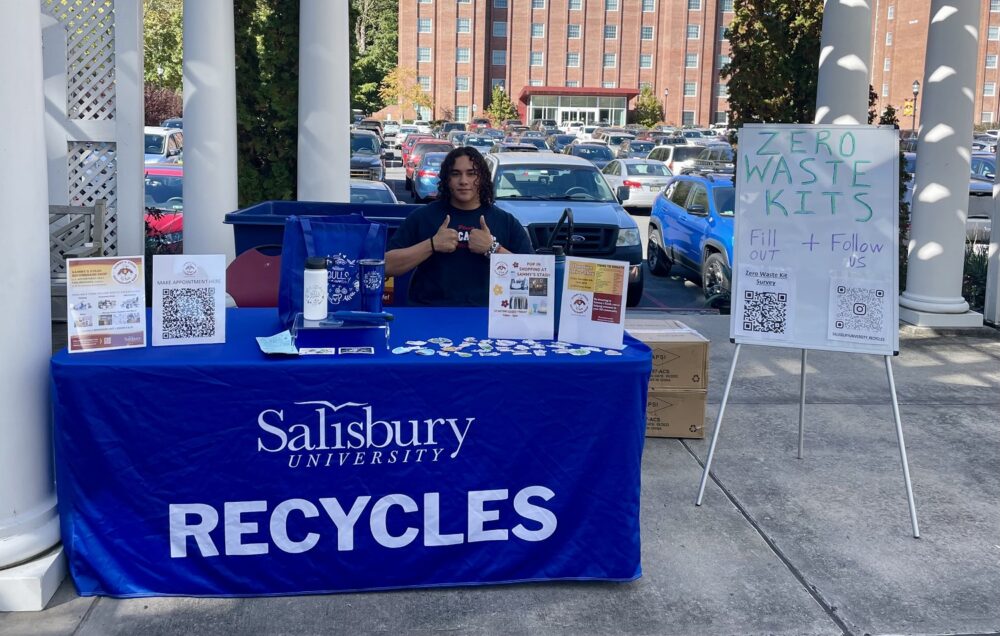We have much more to do and your continued support is needed now more than ever.
Top 10 Reasons to Join Eco-Schools USA

Close to 5,000 schools across the nation are already Eco-Schools. Why have so many schools joined this global environmental education program? Because it WORKS! Not only are students more engaged and exposed to authentic learning experiences, but this flexible program allows schools to build community, gain financial and academic benefits and have fun doing it! The National Wildlife Federation is proud to be a leader in the environmental education field, and we are always looking for ways to encourage new teachers, students and communities to join our free Eco-Schools USA program. Read more to find out why your school should get involved!
-
- Place-Based Authentic Learning Experiences. Authentic learning experiences develop deeper long term understanding. Eco-Schools USA provides opportunities for real world, hands-on learning through environment-based literacy. Each step in the Seven Step Framework helps to build student confidence, communication, and collaboration skills, while at the same time allowing them to think creatively and critically about place-based solutions to sustainability challenges or social injustice.
- Engage All Students. Classrooms are filled with students who are socially, emotionally, economically and academically diverse. The student-led approach used to implement the Eco-Schools pathways (environmental themes) engages and brings together a diversity of student strengths. So whether you are creating a Schoolyard Habitat®, weighing the amount of food waste in the cafeteria, or conducting energy audits, all students can be involved, and use their voice to engage and enact change throughout the greater school community

Students in classroom. Photo Credit : Madison Elementary - Green STEM. The environment can be a compelling context for teaching Science, Technology, Engineering and Math (STEM), especially for students who may not otherwise be enthusiastic about subjects like science and math. Environment-based education offers students the opportunity to engage in real-world issues, from designing local recycling solutions to addressing global fresh water shortages. Green STEM provides an authentic context and connections to STEM subjects that students, by choice, embrace, taking action to make a difference in their own communities and around the world.Access to Green STEM resources can be found on NWF’s Eco-Schools USA website, along with free, online training that is offered several times per year.
- Academic & Financial Benefits. Eco-Schools in the United States and around the world have seen real academic benefits and financial gains as the result of student-led initiatives and campaigns. Our schools report improvements in student engagement and science conceptual understanding, along with an average of 20% savings in energy and 30% savings in water consumption. Need funds for a project? Our monthly newsletter and social media channels provide a steady stream of information regarding timely grant opportunities.
- Flexibility. One of the things teachers love most about the Eco-Schools USA progam is the flexibility it offers. Using the Eco-Schools Seven-Step Framework, teachers can facilitate learning through Eco-Schools in ways that meet their school and district goals, as well as the unique needs of students and the school community. With 12 environmental pathways, teachers and students can focus on issues that are real and relevant to their school, families and communities.
- Standards Alignment. Linking and integrating your Eco-Schools work to your state or local curriculum is one of the Seven Steps. To navigate our standards-based education system, our program has been aligned to educational standards including the National Science Education Standards, the Next Generation Science Standards (NGSS), and the Common Core State Standards (CCSS).
- Environmental Literacy. Eco‐Schools USA engages Pre-K through 12th grade students, faculty, administrators and community volunteers in a holistic, comprehensive and environment‐based program to improve environmental literacy and skills. These skills are life-long and will serve students educationally, economically and socially.

Student at Franklin Square Elementary School. Photo Credit: Avalon Bristow - International Community of Eco-Schools. Once a school joins, they become part of an internationally acclaimed program developed in response to the needs identified by the United Nations (UN) Conference on Environment and Development. We are a partner of the United Nations Educational, Scientific and Cultural Organization (UNESCO). Our community is currently found in 66 countries and every year we collectively reach millions of students whose local actions translate into positive impacts for our planet
- Builds Stronger Communities. Time and time again, schools around the country have shared stories with us demonstrating strong community support for student-led sustainability initiatives and projects. From strong volunteer turnout preparing a new school garden, to co-coordinating an Eco-Fashion Show, filled with designs made from recycled paper and bags, and from the local master gardeners supporting native installations to the local energy providers assisting with energy audits, parents and community members are an integral part of a successful sustainability program. Check out Brooklyn’s Greenpoint First Green Flag Community for inspiration.
- Career Readiness Skills. Students will gain knowledge and skills as they lead the Eco-Action Team, organize and conduct environmental audits, develop action plans, and monitor and evaluate progress towards the goals. This student-driven approach helps to build student confidence, leadership, communication, and collaboration skills, while at the same time allowing them to think creatively and critically about sustainability challenges as they develop place-based solutions for authentic audiences. In this way, students are continuously honing their skills in preparation for jobs and careers in STEM and Career and Technical fields.
To join the Eco-Schools family and to learn more about the National Wildlife Federation’s Eco-Schools USA program, visit our website.






















